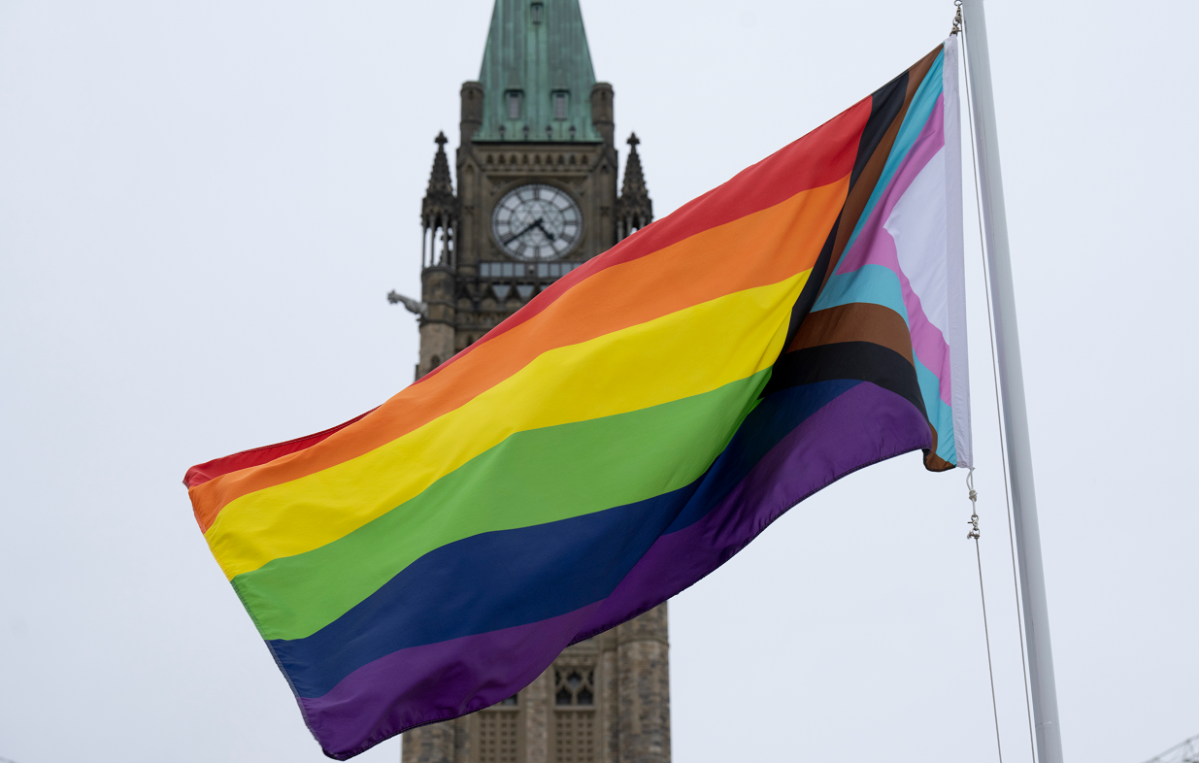An expert is calling the protests against trans people seen in Saskatoon, as well as much of Canada and the United States a form of scare tactics, a distraction from more important issues, and an attempt to sway people’s choices with a false narrative.

A slough of support for the trans community rang through Saskatoon city council Wednesday when the topic of trans people’s access to public changerooms was brought up, with many questioning the motives of the discussion.
Gordon Pennycook, an associate professor of behavioural science at the University of Regina, said instances like this can be deliberately planted disinformation to push for a particular political narrative and influence people’s choices and support for policy.
“The point of all of it, these are things that are intended to scare people off,” Pennycook said.
“Whenever we hear these rumours, it’s usually like someone heard from a friend of a friend or whatever, and there’s never any kind of evidence or underlying proof for the claim.”
He said there’s usually some version of this around election cycles, particularly in the United States.
“Trans people are being used as a kind of category of ‘other’ to scare people about various elements of what you might call progress.”
Pennycook compared this disinformation to the platform in the United States where Trump took aim at immigrants.

“The tactic is to choose some sort of group that people could view as an ‘other,’ and that’s something they need to be scared of, or there’s something they need to be worried about.”
He says there are not many trans people around, so there’s not much you can say about them, hence why rumours and tropes are making the rounds about people being assaulted in bathrooms.

Get daily National news
Pennycook said there’s the element of the unknown involved, saying many people don’t know a single trans person.
“Because it’s an ‘other,’ something they don’t really know that much about, they are therefore more susceptible to lies about them.”
He notes because so many rumours are being spread it makes it easier to see them as real, regardless of there being no real evidence.
Pennycook adds there’s always some resistance to change, and the trans community can be seen as a sign of that change.
He said out of all of the issues people could be focusing on, he thinks this shouldn’t be one of them.
He went so far as to call this an online outrage fad, noting people will move on to the next thing to be outraged at soon enough.
Rachel Loewen Walker, a gender studies professor at the University of Saskatchewan, said she’s found no evidence to suggest trans people pose a threat to women and children in the way that’s being described by these outrage groups.
Loewen Walker noted that on the other hand, 50 per cent of trans people have experienced sexual or physical assault.
“The law is settled on this issue: trans people have the right to use the bathroom and the changerooms with which they identify,” Loewen Walker said.
She said we are seeing more protests against trans women in the United States as well as Canada.
“We’re seeing a lot of protests against trans women even in Canada, and so I think this is a dog whistle, and this is groups calling something out that they don’t necessarily have any evidence for in hopes of building a false narrative.”
Loewen Walker was one of the people who sent a letter to city council, adding she hopes to redirect the focus on the fact that there are still community members that are spreading hateful messages regarding trans people.
“Those that are continuing to harass trans women using our recreational facilities are actually participating in the willful promotion of hatred, and that’s where I think we should be focusing our attention.”
— with files from Nathaniel Dove











Comments
Want to discuss? Please read our Commenting Policy first.